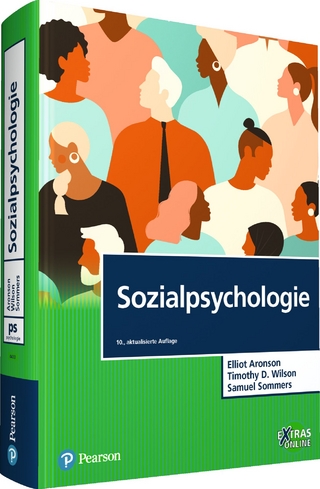
Structural Analysis of Social Behavior (SASB)
American Psychological Association (Verlag)
978-1-4338-3791-3 (ISBN)
- Lieferbar (Termin unbekannt)
- Versandkostenfrei innerhalb Deutschlands
- Auch auf Rechnung
- Verfügbarkeit in der Filiale vor Ort prüfen
- Artikel merken
Structural Analysis of Social Behavior (SASB) helps clinicians and researchers make objective assessments of relationship patterns, and enables clients to improve their social interactions.
SASB can help identify connections between clients' current symptoms, and their current and historical relationship patterns. The SASB coding system serves as the basis for case formulation, which in turn informs the choice of interventions used in a variety of therapeutic approaches. SASB can also be used to evaluate the effectiveness of interventions, thus keeping therapy on track.
This book summarizes over 50 years of research and clinical practice with SASB, and demonstrates how it can be used with any therapeutic approach. It has been traditionally used with patients who are comorbid, often rehospitalized, dysfunctional, and suicidal, although it can be used with any clinical population.
SASB offers providers a therapy compass that helps clarify where the client is now, and pointing in the direction they need to go in order to reach their therapy goals.
Kenneth L. Critchfield, PhD, is a tenured associate professor and program director of the Clinical Psychology Program of the Ferkauf Graduate School of Psychology at Yeshiva University. Dr. Critchfield's research, teaching, and clinical work all emphasize interpersonal and attachment-based principles of change implemented in Interpersonal Reconstructive Therapy. He was co-director of the IRT clinic at the University of Utah Neuropsychiatric Institute and was most recently directed the Combined-Integrated Clinical and School Psychology program at James Madison University. Dr. Critchfield is a Fellow of APA's Society for Advancement of Psychotherapy and he has held leadership roles with the Society for Exploration of Psychotherapy Integration, and has long been a member of the Society for Psychotherapy Research. He maintains a psychotherapy practice and frequently consults on issues of methodology, design, and analysis for work at the interface between interpersonal measurement, personality, and psychopathology. Lorna Smith Benjamin, PhD, is professor emerita of psychology at the University of Utah and founder of the Interpersonal Reconstructive Therapy Clinic at the University of Utah Neuropsychiatric Institute. She is the creator of Structural Analysis of Social Behavior for describing interactions with self and others, and of Interpersonal Reconstructive Therapy which was developed for "treatment resistant" psychiatric patients on the basis of what she learned after decades of using SASB in research and clinical practice.
Part I: Basic Principles Chapter 1. Introduction to SASB
Chapter 2. The SASB Models: Comprehensive Description of the Interpersonal Domain
Chapter 3. Application of SASB Technology Part II: Using SASB to put Clinical Theory into Clinical Practice: An Overview Chapter 4. SASB as Precise Description: Applications in Diverse Theoretical Frameworks
Chapter 5. Interpersonal Reconstructive Therapy
Part III: Observing, Assessing, and Formulating Patient Patterns
Chapter 6. Formulation Using the SASB Intrex Questionnaires
Chapter 7. Using SASB to Formulate Patterns from Clinical Interviews Part IV: Treatment: Connecting with Patients and Optimizing Interventions using SASB-Based Focus on Psychotherapy Process, Case Formulation, and Therapy Goals Chapter 8. Directing In-Session Relational Processes Toward Therapeutic Goals
Chapter 9. Actively Applying the IRT Case Formulation
Chapter 10. Tracking Change and Assessing Outcomes
| Erscheinungsdatum | 04.07.2024 |
|---|---|
| Verlagsort | Washington DC |
| Sprache | englisch |
| Maße | 152 x 229 mm |
| Themenwelt | Geisteswissenschaften ► Psychologie ► Sozialpsychologie |
| Medizin / Pharmazie ► Medizinische Fachgebiete ► Psychiatrie / Psychotherapie | |
| Sozialwissenschaften ► Soziologie ► Mikrosoziologie | |
| ISBN-10 | 1-4338-3791-9 / 1433837919 |
| ISBN-13 | 978-1-4338-3791-3 / 9781433837913 |
| Zustand | Neuware |
| Haben Sie eine Frage zum Produkt? |
aus dem Bereich


